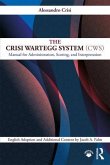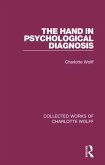Changing Habits of Mind presents a theory of personality that integrates homeostatic dynamics of the brain with self-processes, emotionality, cultural adaptation, and personal reality. Informed by the author's brain-based, relational psychotherapeutic practice, the book discusses the brain's evolutionary growth, the four information-processing areas of the brain, and the cortex in relationship to the limbic system. Integrating the different experiences of sensory and non-sensory processes in the brain, the text introduces a theory of personality currently lacking in psychotherapy research that integrates neurobiology and psychology for the first time. Readers will learn how to integrate psychodynamic processes with cognitive behavioral techniques, while clinical vignettes exemplify the interaction of neurophysiological process with a range of psychological variables including homeostasis, developmental family dynamics, and culture. Changing Habits of Mind expands the psychotherapist's perspective, exploring the important links between an integrated theory of personality and effective clinical practice.
Hinweis: Dieser Artikel kann nur an eine deutsche Lieferadresse ausgeliefert werden.
Hinweis: Dieser Artikel kann nur an eine deutsche Lieferadresse ausgeliefert werden.








